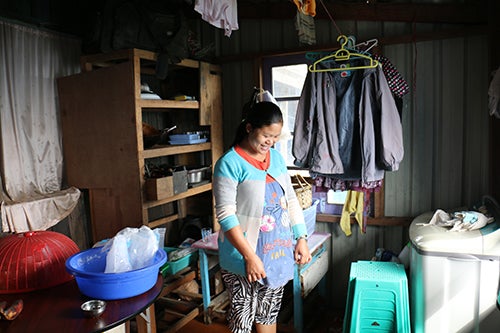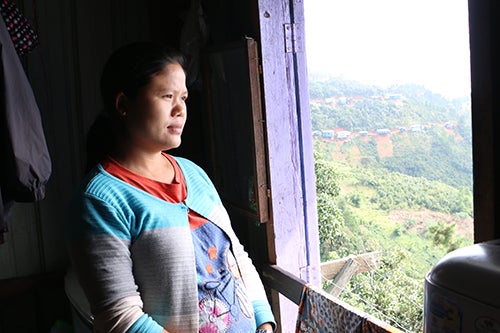Actualités
A safe pregnancy is every woman’s right: Midwifery care saves lives in Myanmar
- 07 Février 2018
Actualités
FALAM, Myanmar – Ngun Hlei was lucky to have seen a midwife during her third pregnancy. Many women in Myanmar don’t.
“I felt very unwell for many months during that pregnancy. But what could I do? I carried on with my work making snacks for selling at the market,” she explained recently in the rural town of Falam, in north-western Myanmar.
“I didn’t stop to think that there could be a serious problem until I saw the midwife,” she added.
The midwife reacted with alarm. Ms. Hlei’s life was in danger, she said, and she rushed to have Ms. Hlei transferred to a nearby hospital.
Ms. Hlei was reluctant to share the details of her experience. It was too painful. The pregnancy ended in a miscarriage, but her own life was saved.
“I am grateful to her that she acted so quickly,” she said of the midwife.

Her story, while tragic, could have ended far worse.
Ms. Hlei was fortunate to live so close to a hospital. Many women in Myanmar’s remote Chin State, where she lives, have to travel for many hours on dirt roads to reach their nearest hospital.
And she was lucky to have seen a midwife at all. Only three of every five births in the country are assisted by a skilled health worker, such as a doctor, nurse or midwife. And in a recent survey, nearly 20 per cent of women said they did not receive antenatal care for their most recent pregnancy.
These are some of the reasons behind Myanmar’s maternal mortality rate. Every year some 2,800 women die each year from pregnancy-related complications, according to recent census data, which found that 282 women die of maternal causes for every 100,000 live births, one of the highest such figures in the region.
And in Chin State, the maternal death rate is even higher.
But most of these deaths are preventable with access to antenatal care, skilled birth attendants and safe birthing facilities.
Midwives like Ms. Hlei’s can offer this care. In Myanmar, they often handle life-and-death situations in remote villages on their own.
When well trained, midwives can avert two thirds of all maternal deaths.

Yet too often midwives often lack the skills needed to perform their job well.
This is why UNFPA is working to professionalize midwifery in Myanmar. Together with the Government and other partners, UNFPA has helped develop Myanmar’s first Midwifery Workforce Policy Framework.
UNFPA also supported the development of a new midwife curriculum, which raises the education and training standard to a two-year Bachelor of Medical Science degree. UNFPA also provides training in hands-on basic emergency obstetric care and essential newborn care to midwifery school faculties.
As for Ms. Hlei, today she is pregnant again. And she is optimistic that it will work out well. And she has been committed to getting antenatal care from her midwife.
“This time I feel good. I feel strong,” she said. “And the midwife tells me baby is healthy too.”